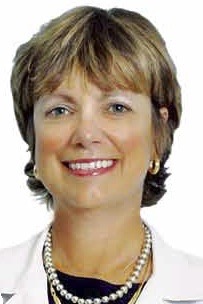Advice From the Forum: Shared Governance and Night Councils
Susan H. Weaver, PhD, RN, CRNI, NEA-BC
Like hospital operations, shared governance is a 24-hour phenomenon. No one, regardless of when they work, can be left out. We went to Dr. Susan Weaver, a solid researcher whose focus is house supervisors and support in hospitals during the evening and night shifts, to weigh in on how to best include personnel from night shifts in a shared governance model.

Research has uncovered there is a difference between the typical day shift and the night shift in hospitals. Night councils have been created at many organizations to provide a forum for night nurses to address their unique issues. Just as unit-based councils allow clinical nurses to have input into decisions that affect their practice on particular unit, night shift clinical nurses discuss issues at night council meetings.
Considering that night shifts typically have newer staff and less services available, it is not surprising that the discussions at initial night council meetings focus on topics such as food for staff and patients, educational needs, and the need to increase par levels. As the night councils evolve and resolve issues concerning basic needs, the councils progress and address issues such as developing a tip sheet for new night staff on how to adjust to working nights.
Since the premise of shared governance is for all clinical nurses to have input into decisions that affect their practice, it is important that a night council representative participates in the hospital shared governance or professional practice council. And similarly, the agenda for the night council meetings should consist of reports from other councils.
When to hold the night council meetings depends on the night staff at the hospital, with some night councils meeting before work at 5:30 PM and others meeting during the shift at 10 PM.
Interestingly, night councils also tend to encourage all staff who work the night staff, not just nurses, to attend and discuss the issues unique to the night shift hospital world. This often results in improved communication and camaraderie with all disciplines. It is important to remember that in hospitals clinical nurses care for patients during the daytime and at night time. Now, as night councils continue to develop and evolve more benefits will be realized with empowered night shift nurses contributing to improvements in nurse and patient safety.
Susan H. Weaver, PhD, RN, CRNI, NEA-BC
Nurse Scientist
Ann May Center for Nursing
Neptune, NJ
Hackensack Meridian Health,
System-Accredited in Shared Governance by the Forum for Shared Governance
A response from Barb Haag-Heitman, PhD, RN, FAAN, PHCNS-BC, board member, Forum for Shared Governance:
I congratulation Dr Sue Weaver and her colleagues at Hackensack Meridian Health on the development of a Night Council. I am aware of several other organizations who have also implemented a night structure to provide a forum for identification and problem solving the unique issues of night time workers. As these night-focused groups do not have a unique scope of work or professional decision-making authority for just nursing, I suggest that alignment with the Management Council or Operational Council as a standing committee be done, rather than a stand-alone entity.
